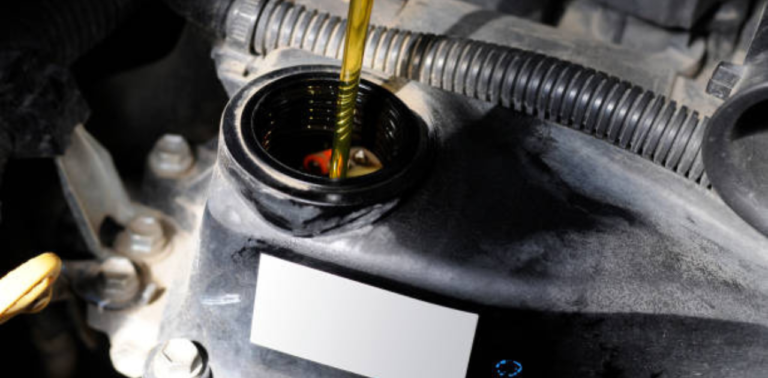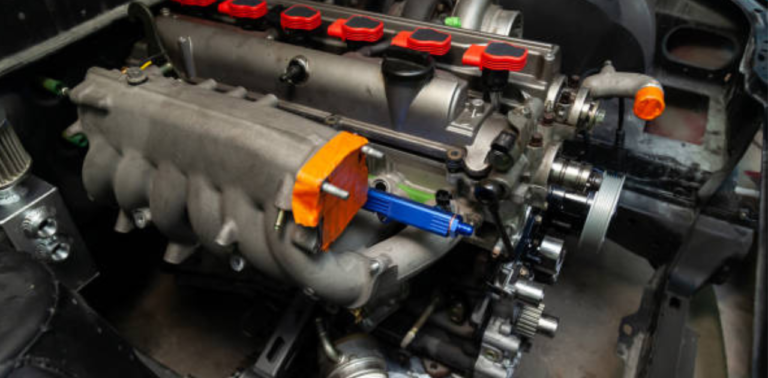Which Engine Oil is Best for Your Vehicle: 5W-40 and 10W-40
The selections might be confusing when trying to select the best engine oil for your car. The engine oils 5W-40 and 10W-40 are two alternatives you’ll frequently come across. Both have their benefits and uses, so automobile owners need to comprehend the distinctions and pick the option that best matches their requirements.
What’s the Difference in 5W-40 and 10W-40?
The viscosity ratings, which are the primary distinction between 5W-40 and 10W-40 engine oils, are indicated by the numbers preceding the letter “W.” The number that comes before the letter “W” denotes the oil’s viscosity when it is cold. Winter is represented by the letter “W”. The lower the value, the smoother the oil flows at colder temperatures.
5W-40 Engine Oil:
5W-40 oil has a lower viscosity at cold temperatures compared to 10W-40. This means it flows more easily during cold starts, providing better protection for the engine during the critical initial moments after ignition. As the engine warms up, 5W-40 behaves like a thicker 40-weight oil, ensuring proper lubrication and protection under high-temperature conditions.
10W-40 Engine Oil:

1. On the other hand, compared to 5W-40 oil, 10W-40 is somewhat thicker at low temperatures. Even so, it’s adaptable and offers sufficient protection of climates. It functions like a 40-weight oil when the engine warms up, providing the essential defense for engine parts.
What does 5w40 mean?
The two essential components of the 5W-40 designation are the “5W” and the “40.” These figures offer important information on the oil’s viscosity, or more specifically, how it flows at various temperatures.
The “5W” stands for the first number, which denotes the ‘W’ for winter and represents the viscosity of the oil in lower temperatures, especially in the winter or when the engine is cold. A lower number indicates superior cold-weather performance in this scenario. Consequently, 5W denotes an oil that has relatively low viscosity and can flow more readily in cold weather, facilitating speedier engine starts.
The “40”: The second figure indicates the viscosity of the oil at elevated temperatures, signifying its reluctance to thin down when the engine warms up during operation. A thicker oil that holds its viscosity well at hot temperatures is indicated by a higher number, like 40. This is essential to keep engine parts adequately lubricated and protected at standard operating temperatures.
What Happens If I Use 10W-40 Instead of 5W-40?
Although using 10W-40 in place of 5W-40 may not immediately harm the engine, it is nevertheless important to consider the weather and road conditions. The thicker viscosity of 10W-40, which may be problematic in colder areas or during the winter, may prevent correct oil flow during start-up and may result in insufficient lubrication at a crucial moment. In contrast, 10W-40 is often suitable in warmer areas and can offer the required protection until the engine achieves operating temperature.

Is 5W-40 Good for Petrol Engines?
In fact, 5W-40 engine oil is suitable for gasoline engines. It functions effectively in a range of petrol-powered vehicles because of its adjustable viscosity. A start-up is better protected at low temperatures because the flow is simpler and the viscosity is lower.
Is 5W-40 Good for High-Mileage Cars?
Yes, 5W-40 engine oil is suitable for heavy mileage automobiles. It can be a fantastic alternative for older vehicles with high mileage. The lower viscosity at startup protects the engine during the initial phases of operation. Additionally, the 40-weight viscosity at higher temperatures ensures the engine is adequately lubricated and protected even in older engines with increased wear and tear.
What Is 5W-40 Oil Suitable For?
5W-40 engine oil is highly versatile and suitable for a range of applications:
·
Modern Vehicles:
It’s ideal for newer vehicles, including those with high-performance engines, providing excellent all-season protection.
Frequent Stop-and-Go Driving:
If you frequently drive in city traffic where there’s a lot of stop-and-go, 5W-40 is a great choice due to its excellent low-temperature performance.
Towing and Hauling:
If your vehicle is involved in towing or hauling, 5W-40 provides the necessary protection under higher stress and temperature conditions.
Mixed Weather Conditions:
If you live in an area with fluctuating weather conditions, 5W-40 offers the right balance for both cold starts and high-temperature performance.
The Verdict: Making the Right Choice.
In the grand scheme of things, the decision between 5W-40 and 10W-40 engine oils ultimately rests on your unique circumstances. Here are some key takeaways to help you navigate this choice:
·
Consider Your Environment: If you live in a region with harsh winters or a considerable temperature fluctuation between seasons, 5W-40 might be the safer bet due to its superior cold-flow properties.
·
·
Driving Patterns Matter: If your daily drive involves a lot of stop-and-go traffic, such as in the city, or if you frequently engage in towing or hauling, the smoother cold-start performance of 5W-40 could provide added engine protection.
·
·
Vehicle Age and Condition: For high mileage or older engines that have seen years of use, 5W-40’s properties can offer a lifeline during cold starts, potentially prolonging the engine’s life.
·
·
Follow Manufacturer Recommendations: Always adhere to your vehicle manufacturer’s recommendations. They know your vehicle best and provide specific guidelines for the type of oil that suits your engine.
·
Conclusion
choosing between 5W-40 and 10W-40 engine oils depends on various factors, including your climate, driving habits, and the specific requirements of your vehicle. Making an informed choice can ensure the longevity and best performance of your engine if you are aware of these variations and take into account the requirements of your vehicle.






